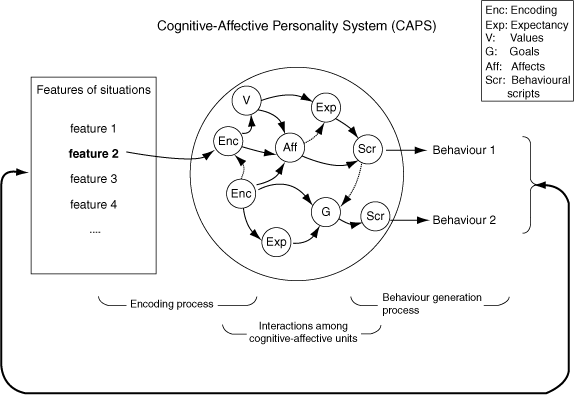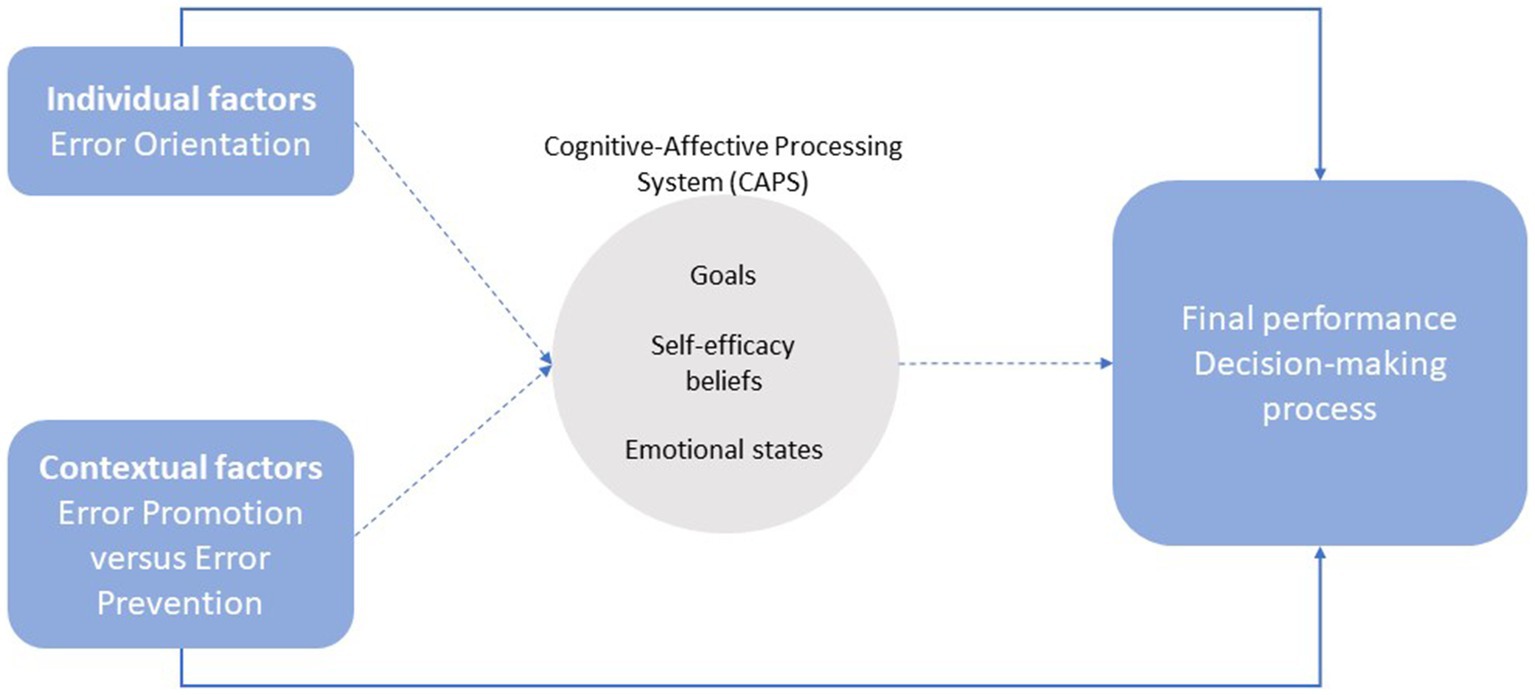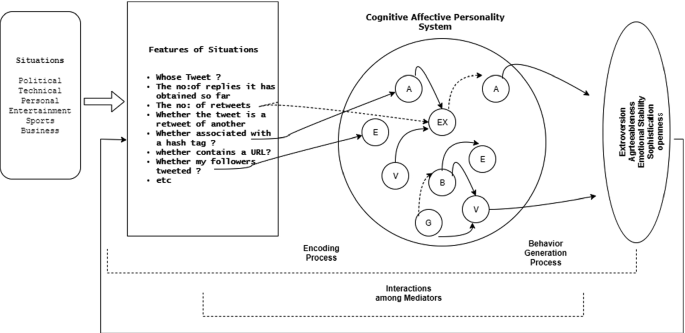
Figure 4 from A cognitive-affective system theory of personality: reconceptualizing situations, dispositions, dynamics, and invariance in personality structure. | Semantic Scholar

The Cognitive–Affective Processing System (CAPS) approach to personality and the concept of personality disorder: Integrating clinical and social-cognitive research - ScienceDirect

Five levels of analysis in the Cognitive-Affective Processing System... | Download Scientific Diagram

Cognitive‐Affective Processing System Analysis of Intra‐Individual Dynamics in Collaborative Therapeutic Assessment: Translating Basic Theory and Research Into Clinical Applications - Shoda - 2013 - Journal of Personality - Wiley Online Library

The Cognitive-Affective Processing System (CAPS) applied to athlete... | Download Scientific Diagram

Schematic representation of the cognitive-affective processing system... | Download Scientific Diagram
![PDF] A cognitive-affective system theory of personality: reconceptualizing situations, dispositions, dynamics, and invariance in personality structure. | Semantic Scholar PDF] A cognitive-affective system theory of personality: reconceptualizing situations, dispositions, dynamics, and invariance in personality structure. | Semantic Scholar](https://d3i71xaburhd42.cloudfront.net/9b2ed1b7572ece51b1cb1c6c221fcb2fd3896398/8-Table1-1.png)
PDF] A cognitive-affective system theory of personality: reconceptualizing situations, dispositions, dynamics, and invariance in personality structure. | Semantic Scholar

Personality and racial/ethnic relations: a perspective from Cognitive-Affective Personality System (CAPS) Theory. | Semantic Scholar

The Cognitive–Affective Processing System (CAPS) approach to personality and the concept of personality disorder: Integrating clinical and social-cognitive research - ScienceDirect

Use of the CAPS for Predicting Employee Performance — EdITS: Career Guidance and Psychological Assessments

The Cognitive–Affective Processing System (CAPS) approach to personality and the concept of personality disorder: Integrating clinical and social-cognitive research - ScienceDirect

The Cognitive–Affective Processing System (CAPS) approach to personality and the concept of personality disorder: Integrating clinical and social-cognitive research - ScienceDirect

Personality as a cognitive-affective processing system (Chapter 27) - The Cambridge Handbook of Personality Psychology

Frontiers | Error orientation in a decision-making simulation program: differences between promotion vs. prevention focus

Personality and racial/ethnic relations: a perspective from Cognitive-Affective Personality System (CAPS) Theory. | Semantic Scholar

User Recognition Using Cognitive Psychology Based Behavior Modeling in Online Social Networks | SpringerLink






